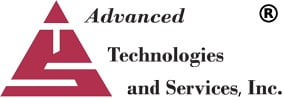The fourth quarter's contribution factor has been announced to be 28.9 percent. How exactly does that affect your USF fees for this quarter? Let’s do the math.
For this first example, let's assume that you’re a VoIP provider with yearly revenue of $100 thousand. It’s time to file your 499s, and you opt to use the Safe Harbor rate which is 64.9% for VoIP (37.1% for wireless). Your annual contribution to the Universal Service Fund is calculated with the following formula:
Yearly Revenue: $100,000
Percent of Interstate Usage (Safe Harbor): 64.9%
Quarterly Contribution Factor: 28.9%
Total Contribution: $18,756
For a provider with $100,000 in revenue, $18,756 is a large percent of this provider's total income. One of the best ways for them to lower their USF fees would be to perform a traffic study in order to determine their actual percent of interstate usage. Let's try that example again, except this time instead of using the safe harbor rate, they've performed a traffic study and found their actual PIU to be 32.5%.
Yearly Revenue: $100,000
Percent of Interstate Usage (Actual): 32.5%
Quarterly Contribution Factor: 28.9%
Total Contribution: $9,393
After a traffic study, this provider's yearly contribution would now decrease to $9,393 - or actually $0 since they’d be considered de minimis (by having a total USF Contribution under $10,000 annually). That's a total savings of $18,756 for this company with $100,000 in total revenue. We work with many providers in situations similar to the example above who use traffic studies to become de minimis, or stay de minimis for longer.
Larger companies are also able to minimize their customers' tax burden by completing traffic studies. Let’s look at the same example as above, except this time with a mid-sized VoIP company with an annual revenue of $1 million.
Yearly Revenue: $1,000,000
Percent of Interstate Usage (Safe Harbor): 64.9%
Quarterly Contribution Factor: 28.9%
Total Contribution: $187,561
Then again, with a hypothetical PIU of 32.5% found through a traffic study.
Yearly Revenue: $1,000,000
Percent of Interstate Usage (Actual): 32.5%
Quarterly Contribution Factor: 28.9%
Total Contribution: $93,925
After finding their actual percent of interstate use through a traffic study, this company would have only had to pay $93,925 annually, instead of $187,561 when using the Safe Harbor rate. That means a total savings of $93,636 for the provider, and their customers.
The examples above are not exaggerated and are representative of the typical savings we see in traffic studies performed for our clients.
According to USAC, the best time to switch from using Safe Harbor to a traffic study is with the November 499-Q filing. On that form, since you are projecting revenues for the 1st quarter of next year, it will keep the methodology consistent throughout the year, which simplifies the true-up process.
Contact us to get started with a free sample traffic study on a subset of your data. ATS has dozens of traffic studies under our belt and we're happy to help providers minimize their USF tax burden.
